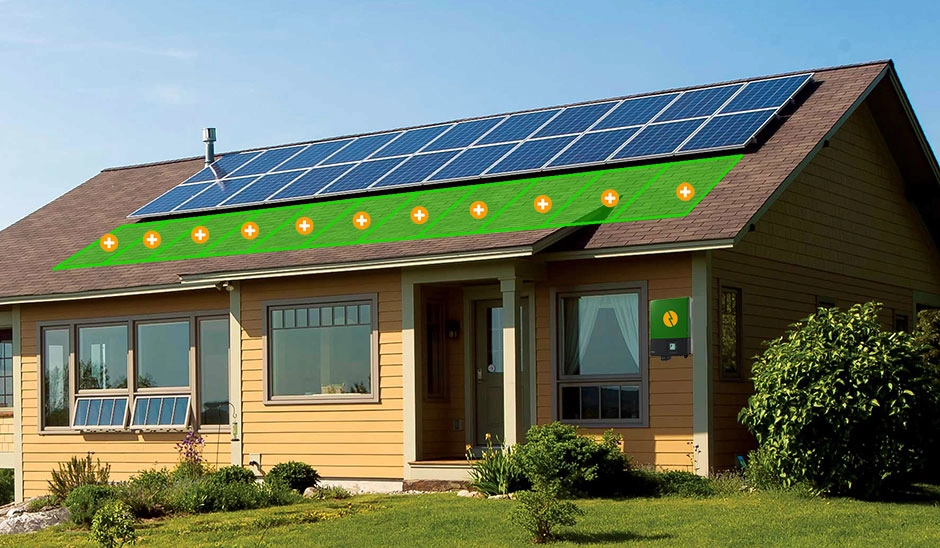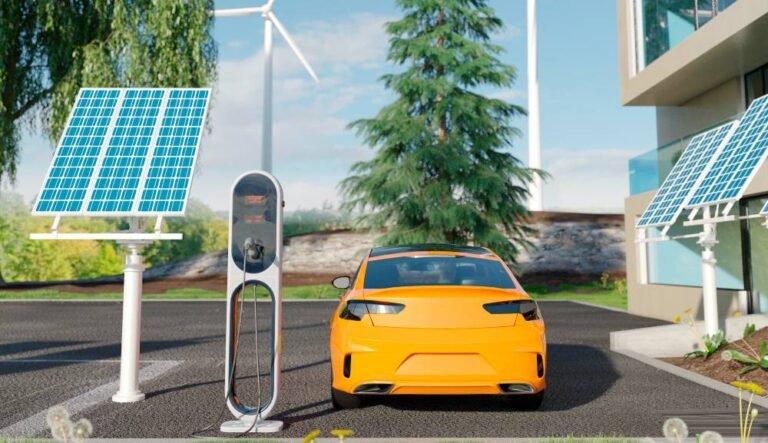Residential Solar Energy: Benefits, Challenges, and Sustainable Impact
Introduction
The transition to renewable energy sources has been one of the main challenges and objectives of today. Residential solar energy stands out as a sustainable and efficient alternative to reduce costs and minimize environmental impacts.
The search for sustainable energy solutions has led many families to invest in photovoltaic systems for electricity generation. Residential solar energy allows for greater independence from the traditional power grid, reducing costs and contributing to environmental preservation. However, despite its advantages, this technology also presents challenges that need to be considered. In this article, we will explore the benefits, challenges, and sustainable impacts of using solar energy in homes.
Advantages of Residential Solar Energy
1. Savings on Electricity Bills
One of the main advantages of solar energy is the significant reduction in electricity bills. By generating your own electricity, you can reduce or even eliminate distribution costs. Over time, the investment in solar panels tends to pay off, resulting in long-term savings.
2. Sustainability and Environmental Impact
Solar energy is a clean and renewable source. By choosing this alternative, you contribute to the reduction of greenhouse gas emissions and help combat climate change. This is a responsible choice that benefits both the environment and future generations.
3. Property Value Appreciation
Installing solar panels can increase the value of your property. Many buyers look for homes that offer sustainable solutions, and the presence of a solar energy system can be an important differentiator in the real estate market.
4. Low Maintenance
Solar energy systems require little maintenance after installation. With proper care, such as regular panel cleaning, the system’s lifespan can reach 25 years or more, making it a long-term investment.
Disadvantages of Residential Solar Energy
1. High Initial Cost
Although solar energy provides long-term savings, the initial installation cost of solar panels can be high. This investment may not be feasible for all budgets, even with financing options available.
2. Climate Dependency
The efficiency of solar panels depends on sunlight exposure. In regions with frequent clouds or rain, energy generation may be affected. This can lead to periods where solar energy is not sufficient to meet household demand.
3. Space Requirements
For the system to work efficiently, it is necessary to have adequate space for panel installation. In homes with small roofs or in dense urban areas, this can be a challenge.
4. Energy Storage
Although batteries exist to store solar energy, they can be expensive. The need for an energy storage system may limit the benefits of solar energy, especially during low generation periods, such as at night or on cloudy days.
Benefits of Residential Solar Energy
Environmental Sustainability
Solar energy is a renewable and clean source, significantly reducing greenhouse gas emissions. The adoption of this technology helps reduce dependence on fossil fuels and mitigates the environmental impacts caused by conventional electricity generation.
- Cost Reduction
The installation of solar panels allows for a significant reduction in electricity bills. In some regions, solar generation can fully meet residential demand, eliminating monthly electricity costs. Additionally, many countries offer tax incentives for the adoption of this technology.
- Property Value Appreciation
Homes equipped with solar energy systems tend to increase in value in the real estate market. Buyers are increasingly interested in sustainable residences that offer long-term cost reduction.
- Low Maintenance
Photovoltaic systems require little maintenance, usually limited to periodic panel cleaning and inverter functionality checks. With a lifespan of approximately 25 years, these systems provide return on investment over time.
Sustainable Impact of Residential Solar Energy
Carbon Footprint Reduction
The use of solar energy significantly reduces the emission of pollutant gases associated with the burning of fossil fuels. This directly contributes to the reduction of the greenhouse effect and the fight against climate change.
Natural Resource Preservation
Unlike hydroelectric plants, solar energy does not require large volumes of water for electricity generation. This helps conserve water resources.
Encouraging a Sustainable Economy
The growth of the solar energy sector stimulates job creation in various areas, such as manufacturing, installation, and maintenance of photovoltaic systems. Additionally, the increased value of clean technologies drives research and innovation in the sector.
Conclusion
Residential solar energy presents itself as a viable solution to reduce energy costs, promote sustainability, and increase property value. Despite the initial challenges, the long-term benefits outweigh the difficulties, making the technology increasingly accessible. With technological advancements and public policy support, solar energy will establish itself as an essential alternative for the future of the global energy matrix.
If you are considering investing in solar energy, consult specialists to understand the best options for your case. With the right information, you can make a choice that benefits both your home and the environment.







